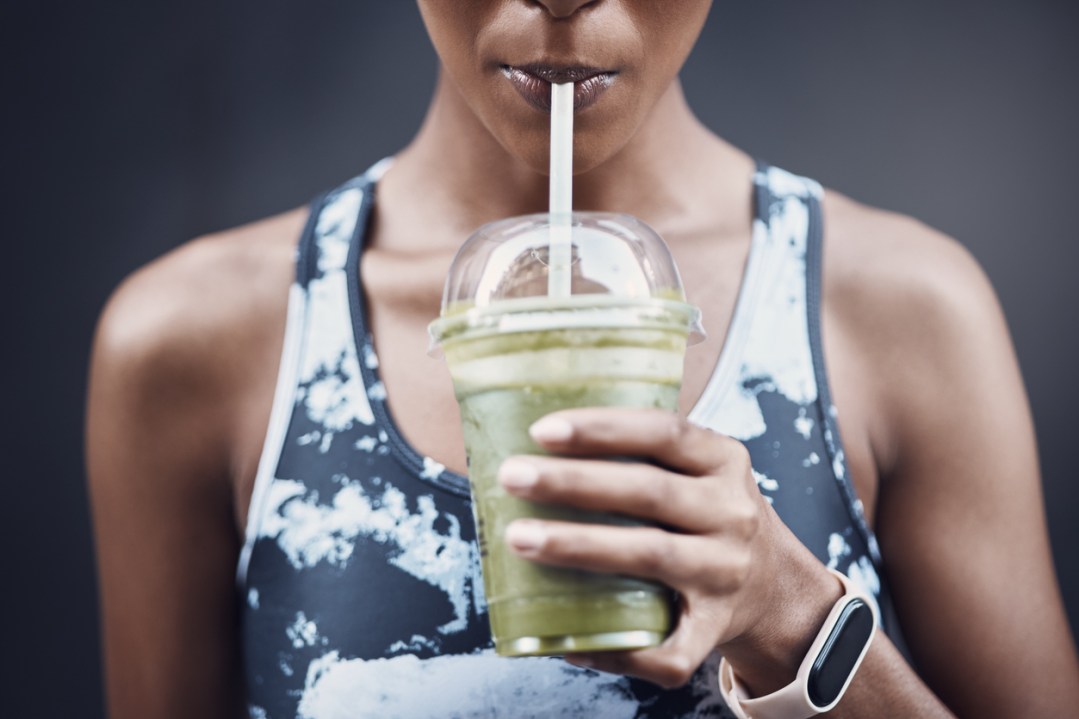If you’re young, hot and desperate for affirmation, the status symbol du jour is an Instagrammable protein shake in a single-use plastic cup sporting the logo of an upmarket gym, private members’ club or boutique supermarket. How depressing.
Like so many vacuous trends, the status shake originated in LA, where the go-to spot is Erewhon – a supermarket so health-obsessed and expensive that it makes Whole Foods look like Lidl. At Erewhon, famous faces such as Hailey Bieber, Kourtney Kardashian and Gisele Bündchen don’t just drink status shakes, but ‘collaborate’ on them, creating their own signature blends which sell for up to $23 (about £17).
It seems to me that status shakes sit at the centre of the Venn diagram of wellness obsession and ‘little treat’ culture: small purchases, often edible, made to lift your spirits or as a reward for performing necessary tasks. Speaking to the FT, the co-founder of Barry’s Bootcamp (which sells such shakes for £9 a pop) Erika Tamayo said: ‘It’s a statement, it says, “I look after myself, I know what’s good for me.” Shakes have become sexy. They’re the thing people want to carry.’
This is probably the time to confess that I once participated in this trend. A couple of years ago, on the eve of my 40th birthday, I decided to do my first (and only) spin class. I joined a friend for an afternoon Destiny’s Child vs TLC class at 1Rebel (no me neither) for one of the least pleasurable 45 minutes of my life. Afterwards, spun out, I treated myself to a shake – which only made the situation worse. By the time I got home I felt quite unwell – my poor body reeling from the intense workout, followed quickly by the sugar-laden shake – and I spent the best part of the next three days horizontal and queasy.
According to the FT, 60 per cent of those paying £26 per class at Barry’s are now buying a £9 shake afterwards – a statistic I find staggering. Who are these people who can afford to spunk £35 on a workout and smoothie with such abandon? Or maybe the point is, they can’t really, but the image is just too enticing to resist. After all, that’s what status symbols are all about, aren’t they? A tantalising image that we are the ultimate versions of ourselves.
It seems to me that status shakes sit at the centre of the Venn diagram of wellness obsession and little treat culture
It could be argued that status shakes are a great step forward in the democratisation of luxury – after all, unlike premium watches, designer bags and sports cars, they cost just a few pounds, rather than hundreds or thousands. But I think that’s also what makes them so dangerous because they’re selling a lie. Drinking one won’t make you fitter or healthier; it won’t make you rich or famous; it won’t make you successful. And I fail to see how it’s a good thing that more people can fool themselves into believing these things are true.
But ultimately, I think it’s the throwaway nature of these shakes that upsets me the most – the drink taking mere minutes to consume, while the single-use plastic vessel it comes in will haunt our planet for generations (taking roughly 500 years to decompose, leaching microplastics into the earth as they do). Naively, I was under the impression that the younger generation cared about the environment but it’s clear that for many, it was just a passing trend (even Greta Thunberg has now moved on, blinded by the bright lights of the pro-Palestine omnicause).
Obviously these shakes are just a fad, and soon enough their moment will have passed. We can only hope they’ll be replaced by something with a longer shelf life – although I won’t be holding my breath.








Comments